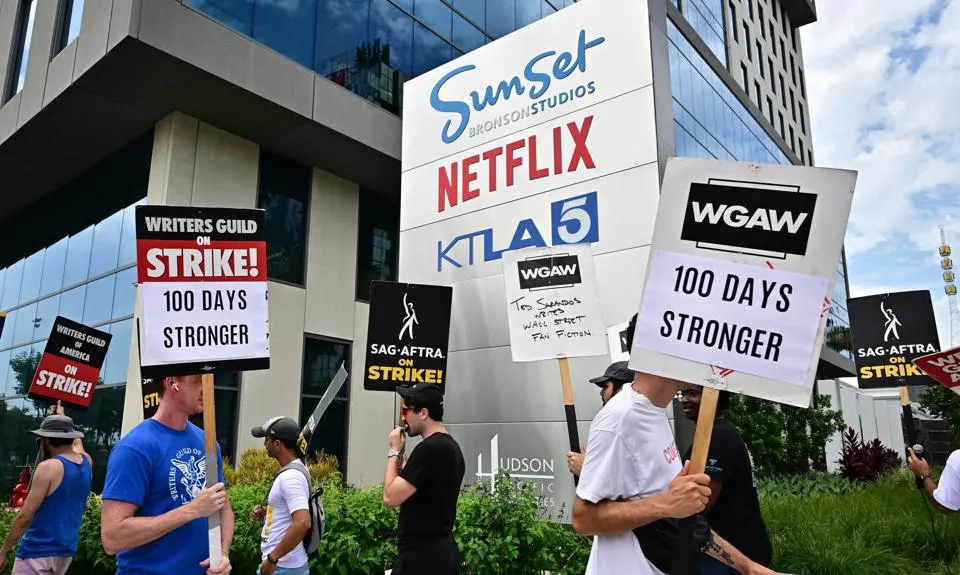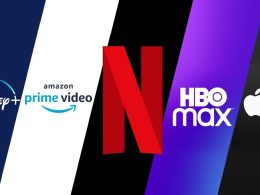Introduction
The ‘What About Us?’ strikes in Hollywood ignited a struggle for equity in the entertainment industry. In this article, we will unravel the causes, consequences, and the industry’s pursuit of equitable labor practices during this time of upheaval.
The ‘What About Us?’ Strikes
The ‘What About Us?’ strikes were a series of labor protests that shook the foundations of Hollywood. These protests were born out of grievances held by various unions and guilds within the entertainment industry. Professionals from different sectors, including actors, writers, and production crews, united under the banner of ‘What About Us?’
At the core of the strikes was a demand for equitable treatment and fair compensation. The advent of streaming platforms had exacerbated disparities, leading to disputes over royalties, residuals, and working conditions. The rallying cry for fairness reverberated throughout Hollywood, challenging an industry marked by opulence.
Consequences for Productions
The immediate consequences of the strikes were evident on ongoing film and TV productions. Sets were abandoned as actors, writers, and crew members walked out, causing significant disruptions, financial losses, and delays for studios and production companies.
These repercussions underscored the pivotal role played by the workforce in Hollywood’s success. The strikes brought to the forefront the fact that the allure of the entertainment industry is founded on the collective dedication of the professionals working behind the scenes.

The Pursuit of Equitable Labor Practices
The ‘What About Us?’ strikes presented a significant challenge to Hollywood:
- Equitable Compensation: The strikes raised questions about whether industry professionals were receiving compensation that matched their contributions, particularly with the increasing prominence of streaming platforms.
- Unity vs. Disruption: Hollywood grappled with the dilemma of unity versus disruption. While the strikes were a testament to solidarity, they disrupted ongoing productions and the industry’s financial stability.
- Adapting to Industry Changes: The protests compelled Hollywood to confront the evolving dynamics of the industry. Compensation models needed to adapt to the growing influence of streaming platforms.
- Negotiation and Dialogue: The industry was compelled to engage in negotiations with professionals and find common ground to move forward.
Streaming Platforms Under Scrutiny
The ‘What About Us?’ strikes put streaming platforms under intense scrutiny in the entertainment industry. The rise of digital streaming services like Netflix, Amazon Prime, and Disney+ had ushered in transformative changes, but the compensation for content on these platforms came into question.
The movement called for streaming platforms to recognize the significance of fairly compensating actors, writers, and production crews whose work was featured on their platforms. This scrutiny led to discussions on new compensation models and bridging the compensation gap.
Charting a New Course
The ‘What About Us?’ strikes have set Hollywood on a path of reevaluation and transformation. The industry is currently in the process of revising compensation structures and working conditions. Studios, production companies, and streaming platforms have entered into negotiations with industry unions and guilds to address these pressing issues.
The way forward entails a significant overhaul of how compensation is calculated and distributed. Streaming platforms are adapting their models to fairly reward content creators and industry professionals. Studios and production companies are reevaluating their agreements to align with the changing dynamics of the industry.
Conclusion
The ‘What About Us?’ strikes in Hollywood embodied a struggle for equity. Their consequences will continue to influence Hollywood’s trajectory toward equitable labor practices. The movement not only reshaped the entertainment industry but also ignited a broader conversation about labor rights and just compensation in the ever-evolving gig economy of the 21st century. It’s a defining moment in the industry’s history, one that holds the potential to redefine it for the better.










